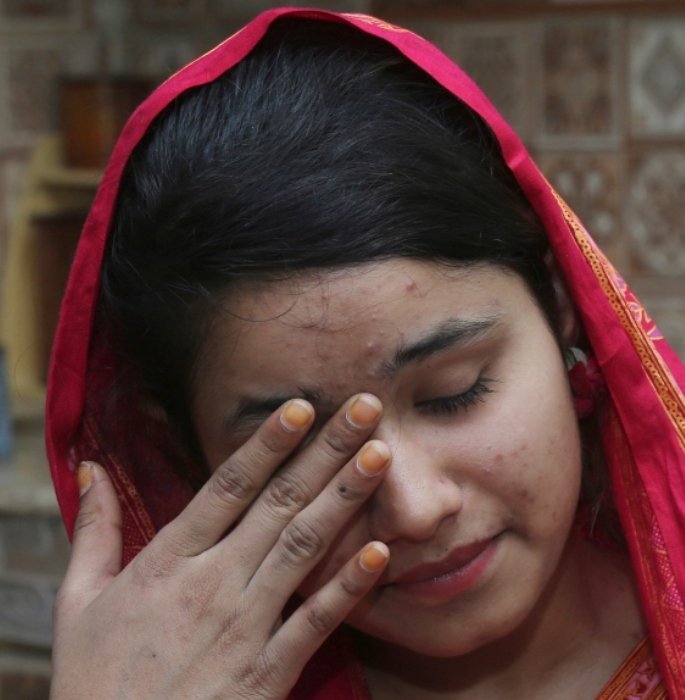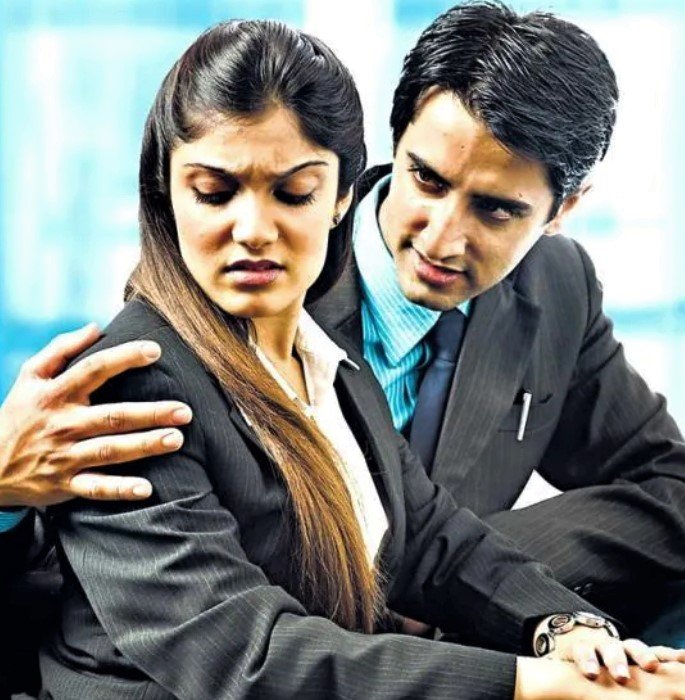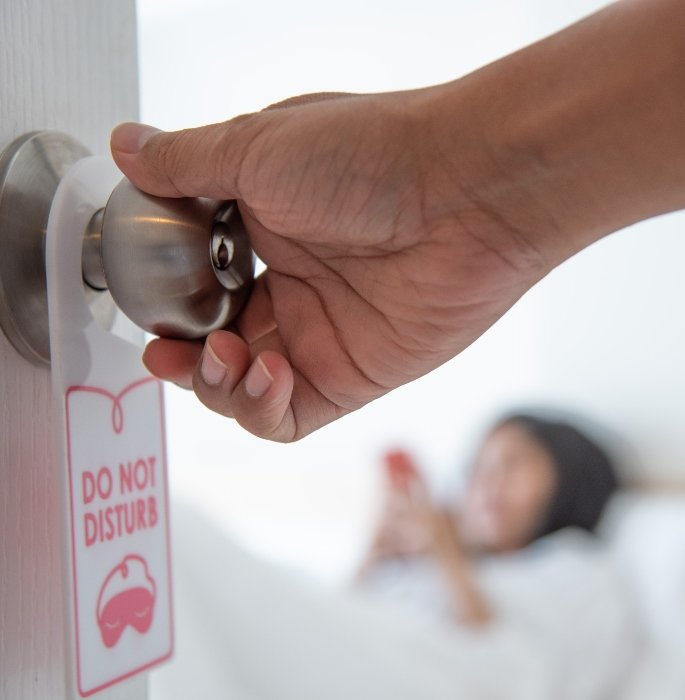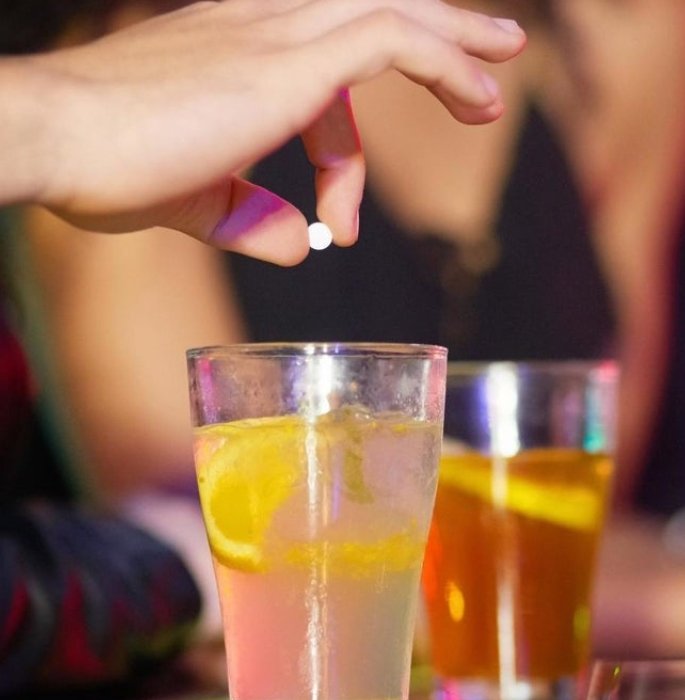Why do South Asian Women Experience Sexual Assault?
Sexual assault happens to many women across the world. Yet, the media and society can often overlook the victims of these attacks.
This type of abuse is an act of physical, psychological, and emotional violation in the form of a sexual act without consent.
It is a traumatic experience and it can make a survivor feel isolated, weak, and blameworthy.
Whether it’s a mother, daughter, sister, or friend, there will be a person who likely knows of a woman who is a victim of sexual assault or harassment.
The problem is a big issue in countries like India and Pakistan.
This issue is prominent for women from different backgrounds. It is also common amongst the British Asian community too.
Although there are not many cases that hit the headlines, it does not mean this problem is tiny for this community.
Attitudes within the South Asian communities come with their own baggage. This is particularly the case when it comes to cases of sexual assault or abuse. Victim-blaming can be a major part of this.
Some women are blamed for what took place rather than seeking justice against the perpetrator.
This means the trauma of an attack or abuse can stay with the survivor for a lifetime and nothing ever really gets done about it.
Consequently, this can engrave very deep scars in the mental state of a victim, often leaving them overwhelmed with leading a normal life again.
So, why are women sexually assaulted and what questions do people usually ask about the victims of such abuse?
DESIblitz looks at the unfair assumptions that thwart the prospect of Desi victims getting the support they deserve after such horrid assaults.
Was it the Clothes?


Any kind of sexual interaction without consent is sexual assault, no matter how minor the perpetrator claims it was.
There is a stereotype that women dress in a revealing manner to attract attention. It is very unlikely that any woman dresses in the way she does to get sexually assaulted.
Yes, there may be a very minuscule minority who are thrilled by the attention they get. However, even they do not expect to be sexually assaulted or abused.
Many women wear clothes based on the environment they are going to be in.
For example, those that go clubbing are going to wear attire that makes them feel great, even if it is somewhat revealing.
Simply put, women are not ‘asking for it’ just because they are dressed in a mini skirt or short dress.
In addition, research has found that it is not even revealing clothing that can allure a perpetrator to sexually abuse. Rather, it is the opportunity or to see the woman as an ‘easy touch’.
An initiative by the Sexual Assault Prevention and Education Center from the University of Kansas created an online gallery called ‘what were you wearing.’
The gallery showed the different clothes victims wore. The clothes in the gallery ranged from t-shirts and jeans to a casual buttoned-down shirt and joggers.
Therefore, a woman’s choice of clothing never warrants an invitation for unsolicited sexual interaction.
Also, a survey conducted in 2019 by The Independent revealed:
“55% of men believe the more revealing the clothes a woman wears, the more likely it is that she will be harassed or assaulted.”
The publication alarmingly went on to state how the research was “weighted to be representative of the UK population.”
This narrative of telling women how to dress as a means of ‘preventing’ sexual assault requires a massive shift.
Although, it is not just the UK that has this problem. The shocking abuse surrounding a woman’s clothing choice is also common in India.
Women, unfortunately, tend to face the blame when they are the victims.
Indian activist Jasmeen Patheja from Bangalore collects the clothes of sexual assault victims as proof that they are not to blame. She told the BBC:
“Girls are raised to be careful, we are raised in an environment of fear which is constantly telling us to be careful.”
“We are told if you’ve experienced assault, then maybe you’re not being careful enough, that’s the underlying message we’re given.”
Jasmeen’s project, ‘I Never Ask For It’, gathers testimonials from women who are victims of sexual assault. Almost all the women chose to describe their outfits as part of this project.
This gave her the idea to create a museum with the clothes of the victims, ranging from kurtas to school uniforms to dresses.
Her powerful message is that clothing does not matter. What matters is the perpetrator’s mindset and ability to do these outrageous acts with ease.
Be More Careful?


Is it a woman’s responsibility to protect themselves from sexual assault? Should she be at home instead of going out?
Or, should women feel free and safe to walk on the streets at any time of day? Most women would agree that the latter is the desired option.
However, daily activities are much more complicated for women. They have to remain mindful of their surroundings and sadly this is the norm.
For example, taking alternative walking routes, constantly updating friends on their locations, or refraining from going out late at night.
In Pakistan, women are often told to stay at home when it gets dark or to go out with a male companion like their dad, husband, or brother.
Unfortunately, many victims of rape and sexual assault risk the blame from society. This was the case with a Pakistani mother in 2020.
In September 2020, a woman was gang-raped at 3 am on a motorway in front of her two children whilst she waited for help after her car broke down.
Astonishingly, Umer Sheikh, a senior police official in Lahore, spoke to the media regarding the incident. He left viewers stunned with his comments.
Umer had implied the woman was partly to blame. He questioned why the woman was out late at night and why she had not chosen to take a busier route.
His accusations towards the victim sparked a public outcry. It resulted in many protests across Pakistan, with women demanding change.
Even though the uproar was substantial, sexual assault cases were still occurring.
This was highlighted through the emergence of video footage showing women being sexually harassed, whilst sitting in a rickshaw.
In August 2021, a large group of male motorcyclists were seen to be harassing two women who were with a child.
The footage shows a woman being forcibly kissed by one of the motorcyclists and being hounded by the group with catcalls. Yet again, no one intervened.
This event happened days after a Pakistani TikToker was assaulted by hundreds of men in Lahore. The distressing incident was also captured on video, which went viral online.
It showed the woman’s clothes being ripped off as she was tossed around in the crowd, getting assaulted and groped.
In June 2021, Pakistan Prime Minister Imran Khan astonishingly admitted:
“If a woman is wearing very few clothes it will have an impact on the men unless they are robots.”
Again, this reiterates the victim-blaming mentality. If police and government officials have this mindset, then how are South Asian women supposed to feel safe?
Pakistan in particular is in dire need of law reformation to create a safe environment for women and get justice for these victims.
Society must change these toxic narratives and create a proactive environment where actual change takes place.
Even in the Workplace?


Sexual assault in the workplace is sadly an issue for many Desi’s, particularly British Asian women. This is because of the mixed environment many tend to work in.
Sometimes women can feel intimidated by their co-workers and even those in a higher position. This can include a manager, many of whom are men.
Due to this, women are unlikely to report sexual assault in the workplace.
After all, will their claim be listened to? Or, will it cause more problems? Moreover, will anyone even believe them?
No manager or boss of an organisation should have the right to sexually exploit anyone. However, this is not the reality.
Sexual abuse may also happen as a result of blackmail. For example, a woman may get told if she does not complete a sexual act, she can risk losing her job.
Sadly, there are also instances of sexual contact in exchange for promotions.
In situations of this nature, it is difficult to determine whether there is consent or if a sense of helplessness has forced victims to ‘conform’.
Leyla Khatun*, a 27-year-old admin officer from Manchester, speaks on her experience of sexual assault in the workplace:
“I have experienced verbal abuse at work because I showed no interest in my boss.
“He would make rude jokes that were completely inappropriate.”
She describes their interactions, which always left her feeling uncomfortable:
“He would touch me on the waist and back and brush past me. When he finally got the message, it was awful.”
Leyla goes on to explain how her boss reported false stories to head office as a way of getting her fired:
“He left me long messages when I would arrive at work about consequences if I didn’t get certain things (cleaning) done before he arrived.
“Eventually, I had to move to another department because it was so bad.”
This horrific experience illustrates why many women feel constrained in their working environment.
They have no one to turn to and risk losing their job. This results in further stress outside of the workplace.
Although there are organisations like Acas offering support to victims, it is an issue that needs the utmost attention.
Aren’t You Safe at Home?


Sadly, in some South Asian homes, sexual assault from family members can occur. Elders in the family can sometimes take advantage of younger girls.
Often these sexual assaults are ignored, and young women must simply keep it to themselves. This is partly due to the huge importance of honour in Desi culture.
To prevent such things from happening, many women often dress modestly when at home or around certain family members.
This reinforces the deadly narrative that women should prevent sexual assault instead of the actual abusers.
When describing her experience of sexual assault at home, Lubna Aziz*, an 18-year-old Pakistani law student from Birmingham, said:
“I didn’t know who to tell and who would help me. Since sex itself is a very taboo topic in Pakistani homes, speaking about sexual assault is even more difficult.
“It was impossible to tell my dad because I felt a strange sense of embarrassment. So I kept it to myself.”
Any home should be a sanctuary for a young woman. However, this becomes broken when going through such horrible attacks, leaving women traumatised and scarred.
Sexual assault is still one of the main problems and a taboo in South Asian communities. Whether this is at home or not, it does need addressing.
This issue makes it likely that young girls don’t even realise when they have become victims. Women often take the blame and keep their stories to themselves out of shame or fear.
Moreover, marital rape is also common across many South Asian homes. But, it remains largely underreported due to the stigma attached to it.
In a research report for ‘Equality Now’, Human Rights lawyer Divya Srinivasan mentioned:
“Failure to criminalise marital rape in Bangladesh, India, Maldives and Sri Lanka is one of the major gaps in rape law protections in South Asia.
“Legally permitting impunity for rape within marriage treats wives as the property of their husbands. [It] takes away women’s rights over their own body.”
Divya added that countries like Bangladesh have laws that permit the marital rape of children over certain ages and encourage victims to marry their rapists.
Such laws allow men to dodge prison if they marry the woman or girl they have raped.
Males who instigate such sexual acts with an absence of consent are rarely confronted since they are family or friends.
It’s almost as though some South Asian societies pardon rape. This is wrong, as homes, especially should be a safe space for all women of all ages.
Were you Drunk or Drugged?


As of May 2020, India is ranked ninth in the list of the largest consumers of alcohol. They are the second-largest consumer of spirits, behind China.
Alcohol is largely drunk at parties or to enjoy company with friends. Though, alcohol abuse can lead to sexual acts of violence.
Domestic abuse can also stem from alcohol consumption. Despite this, intoxication should never be an excuse for sexual and/or domestic abuse.
However, the embracing of alcohol in Indian culture applies to similar communities worldwide.
Anita Khatri*, a 35-year-old housewife from Oxford, talks about how her husband’s alcoholism caused issues in their marriage:
“When he was drunk, he was not a nice person to be around. The kids would hide from him. He would hit me, and he would also rape me.
“I didn’t want to have sex with him in that state, but he never listened to my opinion.”
This alcohol misuse causes people to lose control of their senses and may act differently to how they would when sober.
Sexual assault can also occur when victims themselves are drunk and then exploited by men who prey on their vulnerable state.
Likewise, this applies to drugs and their harmful nature.
Although, there are blurred lines between those who take drugs out of their own choice and those who are spiked.
In such situations, it is clear that the victim is unable to consent. But sadly, sexual acts can still take place with the perpetrator failing to keep a clear mind.
In September 2021, a woman was invited to meet up with a ‘friend’ in Kozhikode, India.
The man, Ajnas Asees, picked up the woman with his friend. After they arrived at his lodge, the woman was drugged and then sexually assaulted by Ajnas and his friend.
Disturbingly, the woman was taken into the next room where Ajnas’ two other friends were waiting. They proceeded to take turns to rape her and allegedly filmed the whole ordeal.
Although only Ajnas and one of his friends were arrested, it shows how dangerous society can be for women.
Frighteningly, the cases around spiking have become more prominent, particularly in the UK.
For example, from September 2017 to September 2021, spiking cases in London jumped from 136 to 473, according to Metropolitan Police Commissioner, Dame Cressida Dick.
Having said that, this is just the tip of the iceberg. Incidents in Nottingham, Manchester, and Birmingham have highlighted how fragile some nightclubs are.
This was reinforced when women started reporting that instead of a pill, they had been spiked by an injection.
Two questions are prompted by this. What kind of measures can be put into place to protect potential victims? Also, how unsafe are the crowds around these women?
Not only are women forced to be mindful on a daily basis but now they cannot even develop trustworthy relationships.
DESIblitz looked more in-depth into drink spiking and British Asians here.
Victims are not Responsible for Sexual Assault


It can be upsetting to know that society still holds the victims of sexual assault accountable instead of those inflicting this type of horrific attack.
What a woman wears or how she acts is not a justification for sexual assault. Increased awareness of these biases that lead to blaming victims is the first step toward decreasing them.
The objectification of women’s bodies and the glamorisation of sexual violence has created a society that disregards women’s rights and safety.
However, discussions around this heinous topic are required in all aspects of South Asian communities.
Whether it is in South Asia itself, the UK, or another country, the stigma needs attention to be challenged and eroded.
When perpetrators are actually punished and held accountable, then there will be a further sense of justice.
This will then lead to more women coming forward and sharing their experiences.
That will be the first step in progression and growth. But, it can only come once actions start getting implemented.
Here are some helpful resources: